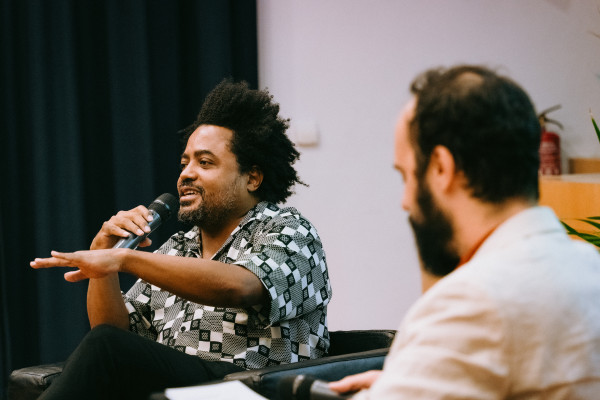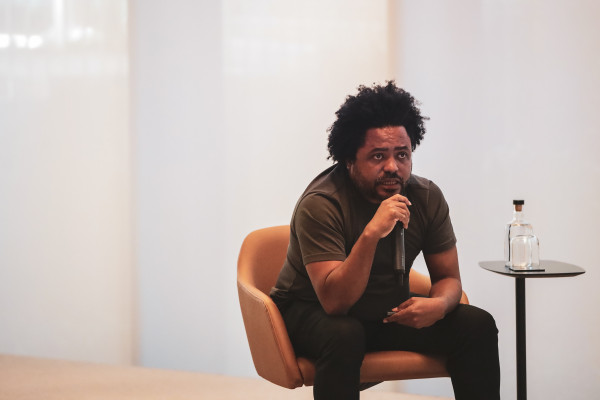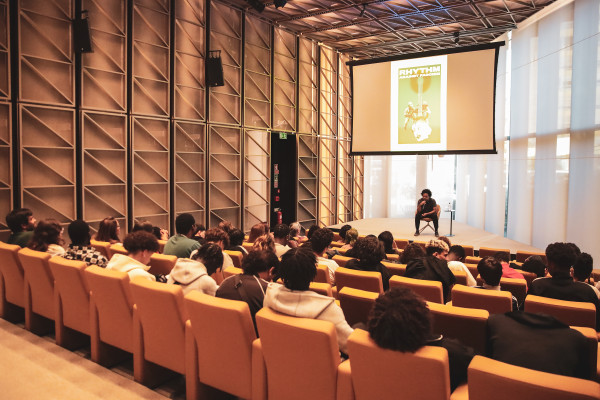Freeing statues and symbols from their historical weight, erecting new memories, framing destroyed landscapes, writing letters to the future and reversing power relations are central gestures in Kiluanji Kia Henda’s artistic manifesto. In this masterclass, the Angolan artist takes us through his creative and reflective universe, situated at the forefront of anti-colonial thinking, proposing a reflection on how the generations that grew up during and after the war re-signify these events and analyze the impact of geopolitics on Angola’s history. In his practice, Kiluanji Kia Henda also seeks to shorten geographical distances, revealing a common past and history that connect different parts of the planet.
Biography
Kiluanji Kia Henda (Luanda, Angola, 1979) is a self-taught artist who began exploring photography influenced by his family background and has since developed a visual language that combines photography, video, installation, performance and sculpture. His artistic practice articulates irony and political criticism, addressing themes such as colonial legacy, African modernism, identity and the construction of collective memory. Rather than limiting himself to historical facts, Henda proposes speculative fictions that open up space for alternative narratives and displaced temporalities. Her work reflects on the occupation and manipulation of public space, questioning the symbolic and political processes that shape the urban landscape and the collective imagination, particularly in the Angolan post-colonial context. She regularly collaborates with artists and collectives from Luanda’s contemporary art scene, maintaining an interdisciplinary approach marked by a strong social conscience. He received the Angolan National Art and Culture Award (2012) and the Frieze Artist Award (2018), and has participated in international residencies in cities such as Venice, Sharjah, Arles and Cape Town. He has exhibited at the Venice, Dakar, Gwangju and São Paulo biennials, and at institutions such as the Centre Pompidou, Tate Modern, Zeitz MOCAA, Guggenheim Bilbao and New Museum, consolidating a critical presence in global debates on representation, power and coloniality.


